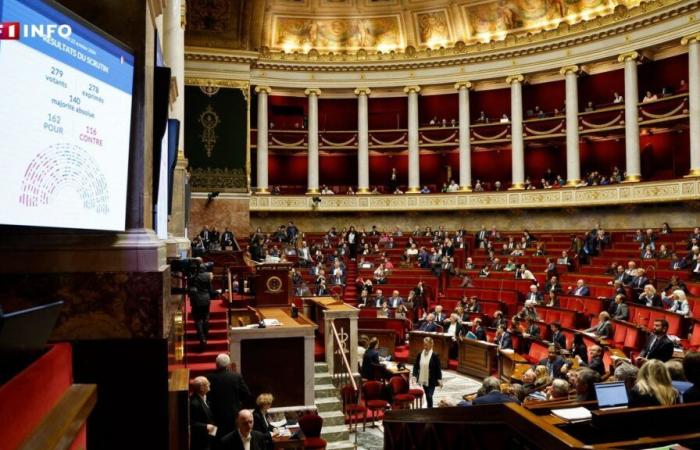
During the examination of the budget in the Assembly, an LFI deputy called for regulatory measures to limit tax loopholes.
There are no less than 465 in France, he said.
A figure very close to reality, even if around fifteen account for half of the annual cost for the State, of the order of 81 billion euros.
Follow the full coverage
Information scrutinized by Auditors
money “thrown out of the windows”. It is with these words that LFI MP Aurélien Le Coq attacked the tax loopholes established in France. In full examination of the budget in the Assembly, the elected official from the North demanded (new window) that these mechanisms are “conditioned”in order to respond to “more social utility” and avoid a “gavage fiscal”.
A cost of 81.3 billion euros last year
In the eyes of the administration or the Court of Auditors, “tax niches” are defined as “exceptional tax provisions inducing a cost for the State budget”. Some are very well known, like the Pinel system, which allows you to benefit from a tax reduction on the purchase price of rented accommodation, subject to conditions – and which should disappear in March 2025. Retirement savings plans are also part of it, the payments being deductible from taxable income. Just as common, donations to associations result in tax reductions of 66% or 75%, applied to the amount of the donation.
These tax loopholes concern individuals as much as businesses: the Legalstart site mentions (new window) thus jumbled “assistance for the creation or takeover of a business (ACRE); the research tax credit (CIR); the exemption of capital gains from professional transfers”or even “tax reduction for donations or corporate sponsorship”. Finally, note that measures only apply to certain professions or activities, whether it is the flat-rate allowance for journalists (new window) or that which benefits fishermen who work outside French territorial waters. For the latter, part of the remuneration is exempt from taxes.
-
Read also
Social Security budget: deputies caught up in time, the text goes to the Senate in its initial version
To have an idea of the scale and number of active tax loopholes in France, the Court of Auditors invites you to take an interest in “Volume II of the Ways and Means annex”, attached each year to the draft law of finances (PLF). This document (new window)we are told, “presents all tax expenditures, as well as an assessment of their cost for the past year, the current year and the year to come”. The institution adds that for 2024, there are “467 exceptional tax provisions”a figure very close to that put forward by MP Aurélien Le Coq. The consequence of these tax loopholes? “A reduction in state tax revenue estimated at 81.3 billion euros in 2023.”
Although the cost to public finances is highlighted here, it must nevertheless be kept in mind that these measures are often put in place in order to meet specific social or economic objectives. Many associations find themselves, for example, dependent on donations sent to them by individuals, sums which finance their activities and which enable them to act in areas where public authorities do not intervene or prove to be failing.
A minority of tax loopholes concentrates costs
Very diversified, often unknown, tax loopholes are not all comparable. Particularly with regard to their annual impact on public finances. The Vie Publique institutional site notes (new window) as well as in 2023, “around fifteen measures” concentrated “most of the cost of tax expenditures (43.3 billion euros, or 53.2% of the total)”. Note further that “47.1% of these expenses” affected income tax, which led to its net return being reduced by 43%.
In total, 250 tax loopholes each cost less than 9 million euros, their total not exceeding 400 million euros. The Court of Auditors also invites the authorities to consider “more systematically the opportunity” to remove some of them, especially those which only concern a very limited number of beneficiaries. The latest report also tells us that for 206 tax loopholes, the administration is not able to communicate the precise number of beneficiaries. It is therefore difficult to assess the effectiveness of these devices.
Finally, let us point out that the cost of tax loopholes has been revised (slightly) downwards in the PLF 2024. Of the order of 4.3 billion euros compared to the sum mentioned by the PLF 2023. A reduction which This does not largely explain the end of the tax credit for competitiveness and employment (CICE).
Do you want to ask us questions or submit information that you do not believe is reliable? Do not hesitate to write to us at [email protected]. Also find us on Twitter: our team is present there behind the account @verif_TF1LCI.





